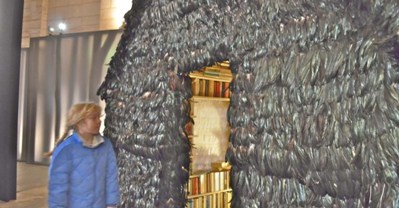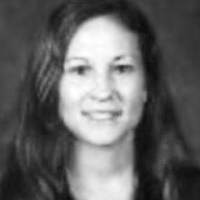Communication access realtime translation (cart) is provided in order to facilitate communication accessibility and may not be totally verbatim. The consumer should check with the moderator for any clarifications of the material.
This text-based course is a written transcript of the live event, “Winging It: One-Year Case Study of Teacher-SLP Collaboration Discourse in Classroom-Based Therapy” presented by Lara Wakefield on February 6, 2012.
>> Amy Hansen: Good afternoon, everybody. Welcome to today's expert seminar, “Winging It: One-Year Case Study of Teacher-SLP Collaboration Discourse in Classroom-Based Therapy” presented today by Dr. Lara Wakefield. Lara has 17 years of experience as a speech‑language pathologist. She has researched the roles of the speech‑language pathologist and teachers in collaborative settings related to language and literacy for 13 years in several grant funded projects. For the past four years, she and her research partner, Theresa Schaber, have researched therapy apps in the context of evidence‑based practice principles. Dr. Wakefield is in private practice as an SLP and Parent Advocate at Wakefield Consultation Services in Columbia, Missouri. Welcome, Lara. Thank you so much for joining us today.
>> Lara Wakefield: Hello, everyone, thank you for joining me today. I will be describing my research with you related to a case study of an SLP's roles, routines and perceptions as a collaborative partner in inclusive service delivery. This was a seven month longitudinal qualitative design that examined one SLP's journey in delivering services in the classroom. This research was supported by a grant from the U.S. Department of Education. This was the research for my dissertation and you can find the entire dissertation online at etd.ohiolink.edu/view.cgi?ucin1178481045. It is available in PDF format and all my references are listed in this link.
After this presentation I hope that you will be able to identify the most important aspect for successful collaboration. I hope that you'll be able to describe three waves of collaboration, describe improvisational teaching and therapy and identify the five types of collaboration sequences found in the research.
Introduction: Winging It!
I would like to introduce to you Ms. Lange who was the SLP in this project. I want you to hear the first comment she said to me and her impression of implementing therapy in a classroom in a collaborative inclusion model. She said, “I don't think I would have ever realized all the communication problems that my kids were having if I would have stayed in my room doing pull-out. There is so much more real language and opportunity to practice strategies in the classroom.” I found that to be a powerful statement about how her thinking changed once she started implementing therapy in the classroom.
Below is a picture of Ms. Lange peering at you over her IEP files and I'm sure all of you know this feeling especially this type of year.

The title of this presentation is called “Winging It!” And I want to illustrate that through this photo (below).

This was a picture I took at an art exhibit where the artist had created a little schoolhouse out of books on the inside and the outside was made out of feathers. “Winging It” relates to the idea that no matter how much you prepare and plan a structure for therapy in the classroom, there will always be some variable that you could not plan for. You will always have to be ready for the unpredictable situation. You have to be flexible and improvise situations in order to make them therapeutic.

